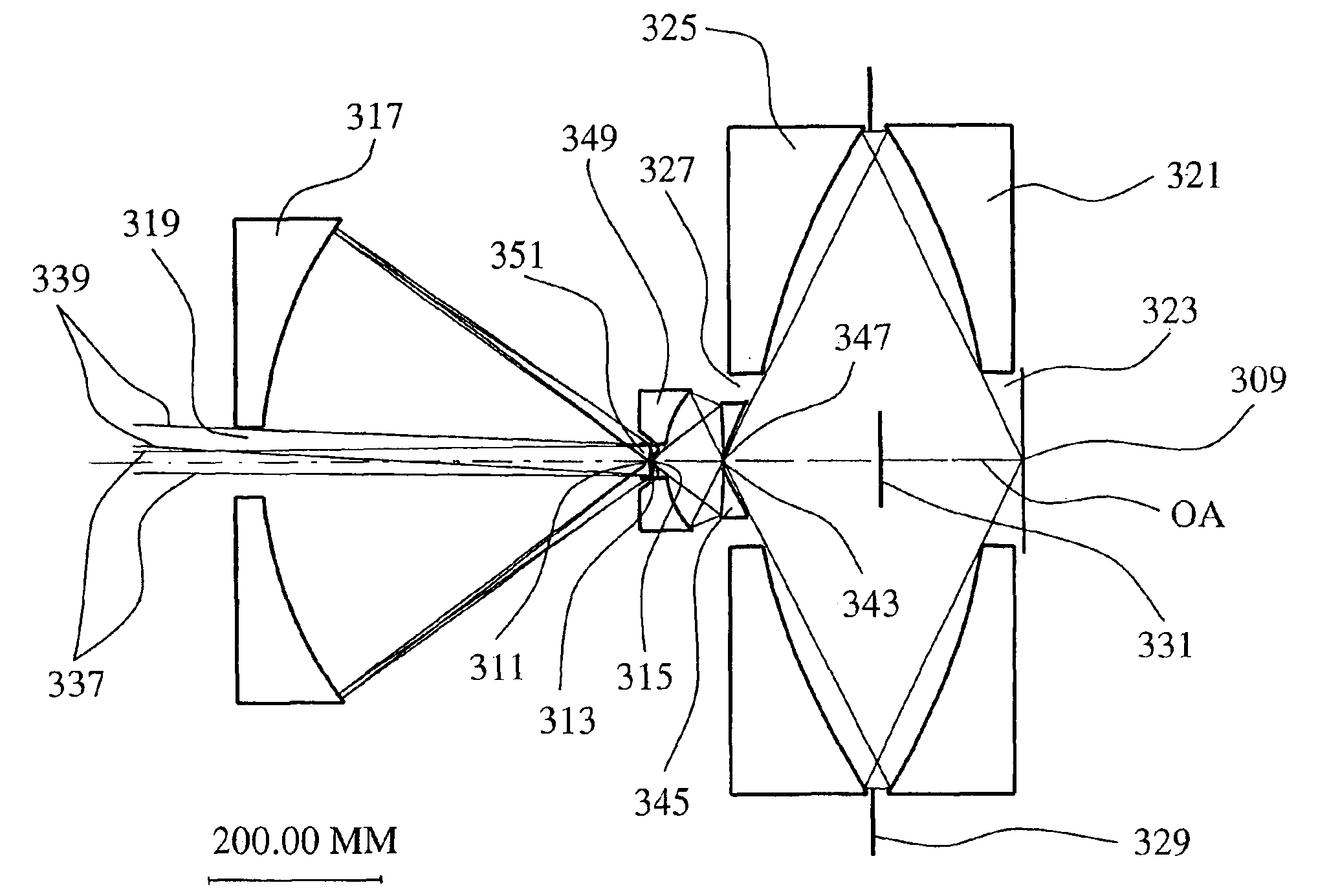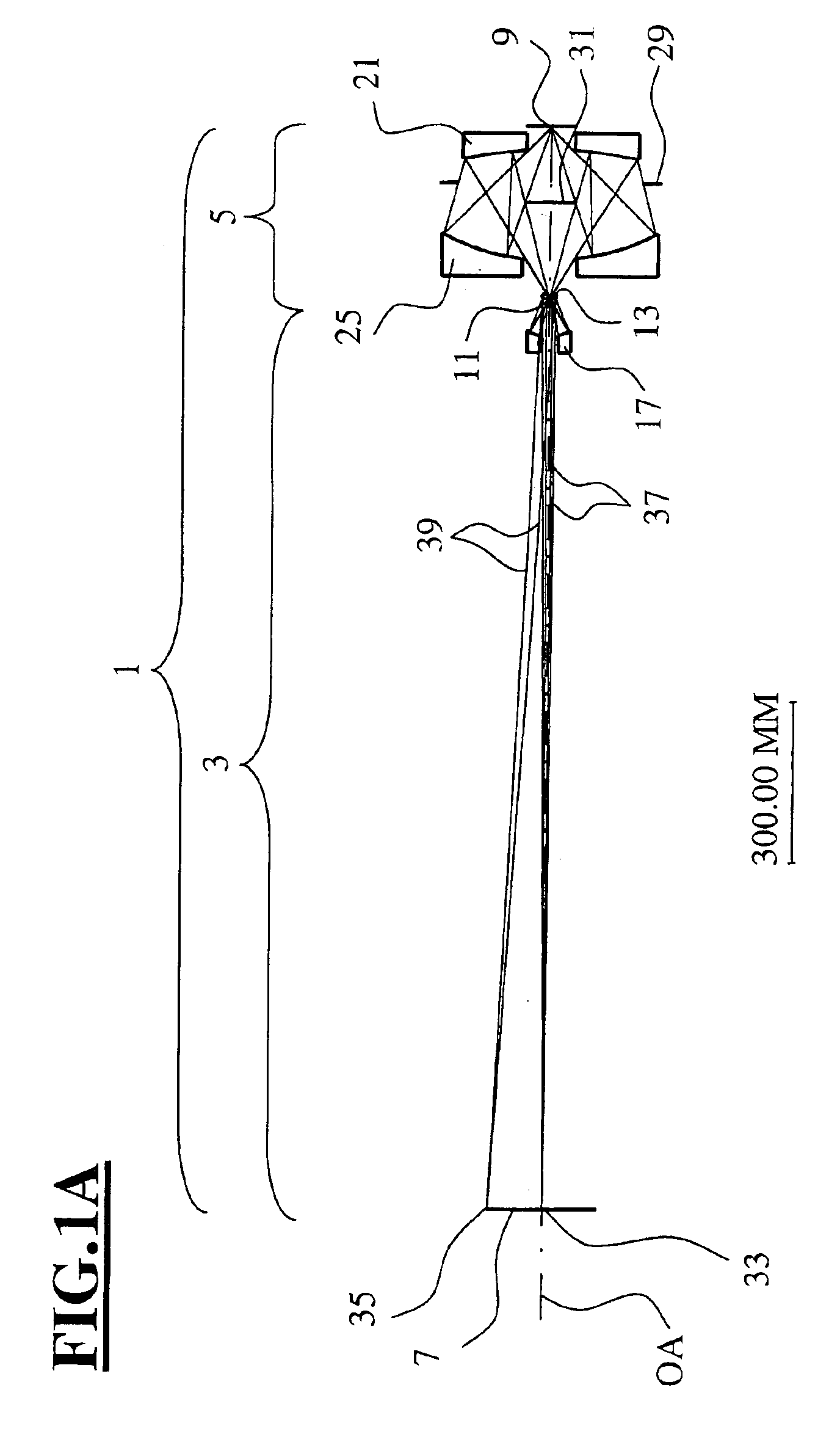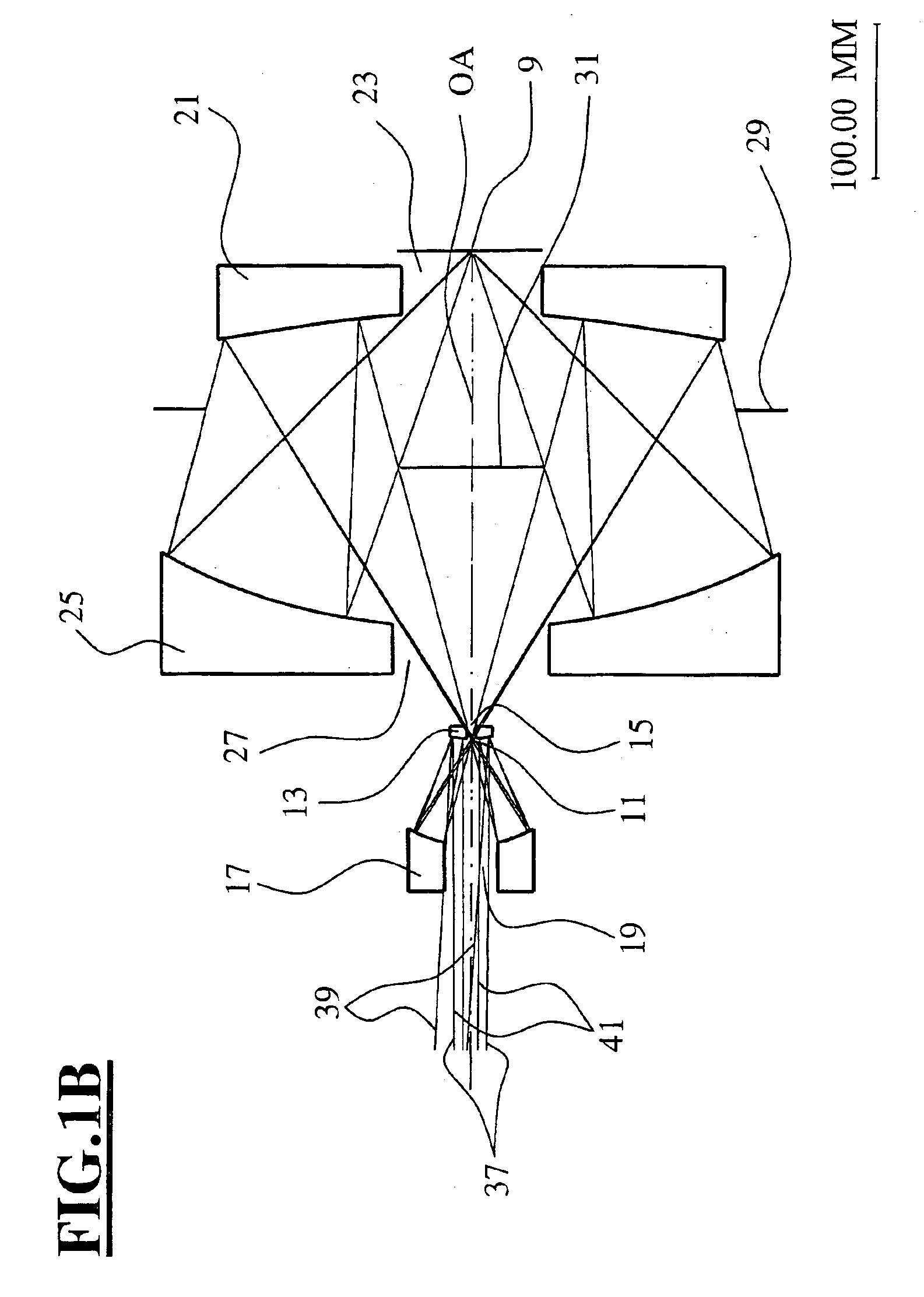Objective with pupil obscuration
a technology of objective and pupil, applied in the field of objective with mirror, can solve the problems of greater aperture obscuration, mirror obscuration, more unfavorable ratio of mirror aperture diameter to mirror diameter, etc., and achieve the effect of reducing aperture obscuration and improving projecting objectives
- Summary
- Abstract
- Description
- Claims
- Application Information
AI Technical Summary
Benefits of technology
Problems solved by technology
Method used
Image
Examples
Embodiment Construction
[0018]Only light rays with aperture angles starting from a specific minimum value contribute to the projection in this objective with pupil obscuration. The aperture angles are measured with reference to the optical axis. The minimum aperture angle results for the light ray which is still transmitted by all mirrors and not vignetted by a mirror aperture. The light rays are not directly vignetted by the mirror apertures, but pass as false light through the latter and strike a special light blocking device, while the remaining rays of a ray pencil with larger aperture angles are reflected by the mirrors. The aperture obscuration is defined as the ratio of the sine of the minimum aperture angle in the second field plane to the numerical aperture in the second field plane. Values of less than 0.6, in particular less than 0.5, can be achieved for the aperture obscuration by means of the arrangement of the intermediate image in the vicinity of the first mirror, and with the use of a conca...
PUM
| Property | Measurement | Unit |
|---|---|---|
| diameter | aaaaa | aaaaa |
| axial distance | aaaaa | aaaaa |
| wavelengths | aaaaa | aaaaa |
Abstract
Description
Claims
Application Information
 Login to View More
Login to View More - R&D
- Intellectual Property
- Life Sciences
- Materials
- Tech Scout
- Unparalleled Data Quality
- Higher Quality Content
- 60% Fewer Hallucinations
Browse by: Latest US Patents, China's latest patents, Technical Efficacy Thesaurus, Application Domain, Technology Topic, Popular Technical Reports.
© 2025 PatSnap. All rights reserved.Legal|Privacy policy|Modern Slavery Act Transparency Statement|Sitemap|About US| Contact US: help@patsnap.com



